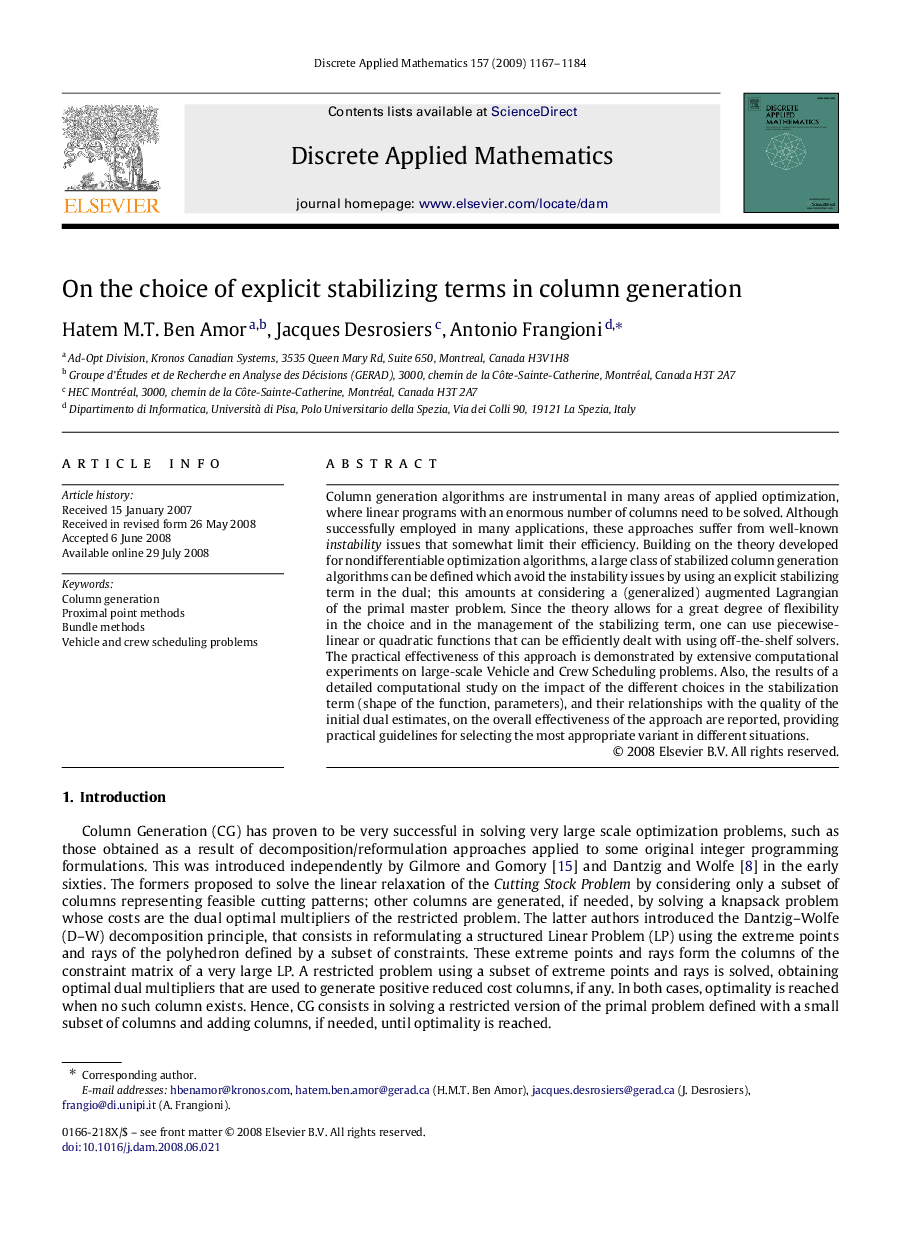| Article ID | Journal | Published Year | Pages | File Type |
|---|---|---|---|---|
| 420627 | Discrete Applied Mathematics | 2009 | 18 Pages |
Column generation algorithms are instrumental in many areas of applied optimization, where linear programs with an enormous number of columns need to be solved. Although successfully employed in many applications, these approaches suffer from well-known instability issues that somewhat limit their efficiency. Building on the theory developed for nondifferentiable optimization algorithms, a large class of stabilized column generation algorithms can be defined which avoid the instability issues by using an explicit stabilizing term in the dual; this amounts at considering a (generalized) augmented Lagrangian of the primal master problem. Since the theory allows for a great degree of flexibility in the choice and in the management of the stabilizing term, one can use piecewise-linear or quadratic functions that can be efficiently dealt with using off-the-shelf solvers. The practical effectiveness of this approach is demonstrated by extensive computational experiments on large-scale Vehicle and Crew Scheduling problems. Also, the results of a detailed computational study on the impact of the different choices in the stabilization term (shape of the function, parameters), and their relationships with the quality of the initial dual estimates, on the overall effectiveness of the approach are reported, providing practical guidelines for selecting the most appropriate variant in different situations.
